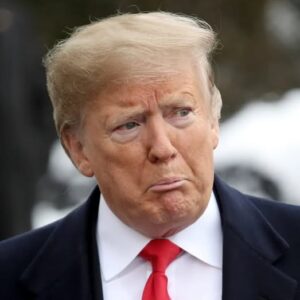I had always believed in the strength of love, the kind that weathers any storm, the kind that heals even the deepest wounds. My grandparents had raised me with that kind of love. After losing my parents at just eight years old, they took me in and became my whole world. Their love wrapped around me like a protective shield, making me feel safe, cherished, and invincible.
Growing up in their care, I saw them as the embodiment of kindness and integrity. They taught me to be compassionate, to embrace people for who they were, and to always stand up for what was right. But life has a way of challenging the beliefs we hold dearest, and my heart broke the day I learned that the people I admired most carried a prejudice I never saw coming.
When I introduced my boyfriend, Sam, to my grandparents, I expected warmth and acceptance. Sam, a man of color, walked into their home with a kind heart, a warm smile, and a love for me so deep it radiated from every glance he sent my way. But instead of open arms, I saw hesitation. Instead of smiles, there was an unspoken disapproval lingering in their eyes.
I tried to ignore it at first. Maybe they were just being protective. Maybe they needed time. But as the weeks went on, their unease hardened into cold resistance. They found small things to criticize, things that had nothing to do with Sam’s character. It was as if they were searching for reasons to justify the discomfort they refused to name.
Then came the moment that should have been one of the happiest of my life—Sam’s proposal. He knelt before me, his voice steady but full of emotion, asking me to be his forever. My heart swelled with joy as I said yes, but the moment I shared the news with my grandparents, their disapproval turned into something uglier.
They didn’t hide it anymore. They sat me down and, with strained voices, told me they couldn’t support my marriage to Sam because of his race.
I felt the air leave my lungs. The people who had taught me to love without boundaries were now asking me to place one between myself and the man I adored. My heart shattered. Was their love for me really conditional? Could they not see Sam for who he was, rather than the color of his skin?
I tried reasoning with them, pleading with them to look past their outdated beliefs. I reminded them of the love they had once shown my mother, who was of Asian descent. They had accepted her wholeheartedly, yet they now recoiled from the man I chose to love. The contradiction stung.
Sam knew that my grandparents weren’t overly warm toward him, but he assumed it was just the usual tension of meeting protective family members. He had no idea the real reason behind their coldness. I didn’t want to tell him, not because I doubted his strength but because I hated knowing that the people who raised me were capable of such prejudice.
Caught between my love for Sam and my love for my grandparents, I felt torn apart. My friends urged me to cut ties, to walk away and build my life without them. “They don’t get to dictate your happiness,” they said. “If they can’t accept him, then they don’t deserve you.”
Their words made sense, but they didn’t lessen the ache in my chest. These were the people who had given me everything when I had no one. Could I really just walk away?
One evening, I finally broke down and told Sam everything. His reaction surprised me. He was calm, understanding—even hopeful.
“How are you taking this so well?” I asked, my voice cracking.
He smiled, squeezing my hand. “Because I’ve seen people change.”
Sam told me about his cousin, who had come out as gay years ago and faced rejection from their grandparents. At first, they refused to accept him, spewing the same kind of hurtful rhetoric my grandparents had. But over time, as they got to know his partner and saw the love between them, something shifted. They softened. They learned. They grew.
He pulled up pictures on his phone—his grandparents laughing with his cousin’s husband, embracing him like family. “People can grow,” he said. “But they have to be given the chance.”
His words gave me hope. Maybe my grandparents weren’t beyond redemption. Maybe, if I stood my ground, they would come to see what I already knew—Sam was the best thing to ever happen to me.
So, I sat them down one Saturday morning, my voice steady but firm. I told them how deeply their disapproval had hurt me. I told them that if they could not accept Sam, they would lose me. I wasn’t asking for immediate understanding, but I was demanding respect.
At first, they resisted. Old beliefs don’t crumble overnight. But as the days passed, I noticed a shift. They started inviting Sam over for dinner, their rigid posture relaxing little by little. Conversations became warmer, their sharp comments replaced with genuine curiosity.
Then one night, Sam was running late for dinner. I saw the worry in my grandparents’ eyes, the way they checked the clock, waiting for him. When he finally arrived, my grandmother smiled and said, “We weren’t going to start without you.”
That was the moment I knew things had changed.
Days later, my grandparents pulled Sam aside. I watched from the doorway as they spoke in hushed tones, their faces filled with remorse. And then, something I never expected—my grandfather pulled him into an embrace.
They apologized. They admitted their fears had been misplaced. And in that moment, I saw the people I had always believed them to be—not perfect, but capable of growth, capable of love.
On my wedding day, as I stood at the altar, I looked out into the crowd and saw them sitting in the front row, smiling through teary eyes. They weren’t just tolerating my choice; they were celebrating it.
Love had won.
It didn’t come easily, and it didn’t come without pain. But it had triumphed in the end. My grandparents had chosen love over prejudice, and in doing so, they had gifted me with something more precious than their approval—they had given me hope that people can change, that hearts can open, and that love, when fought for, always finds a way.




